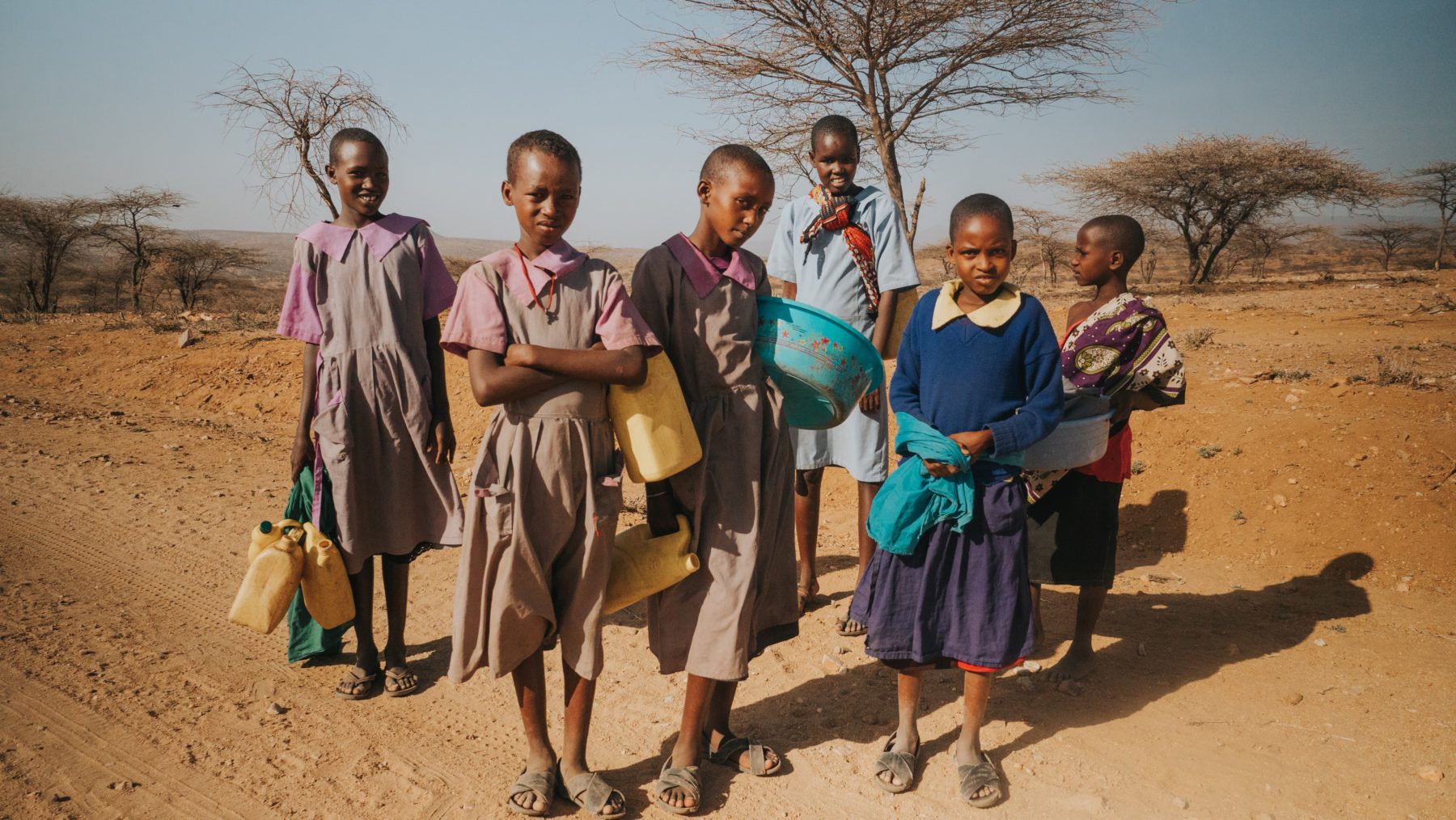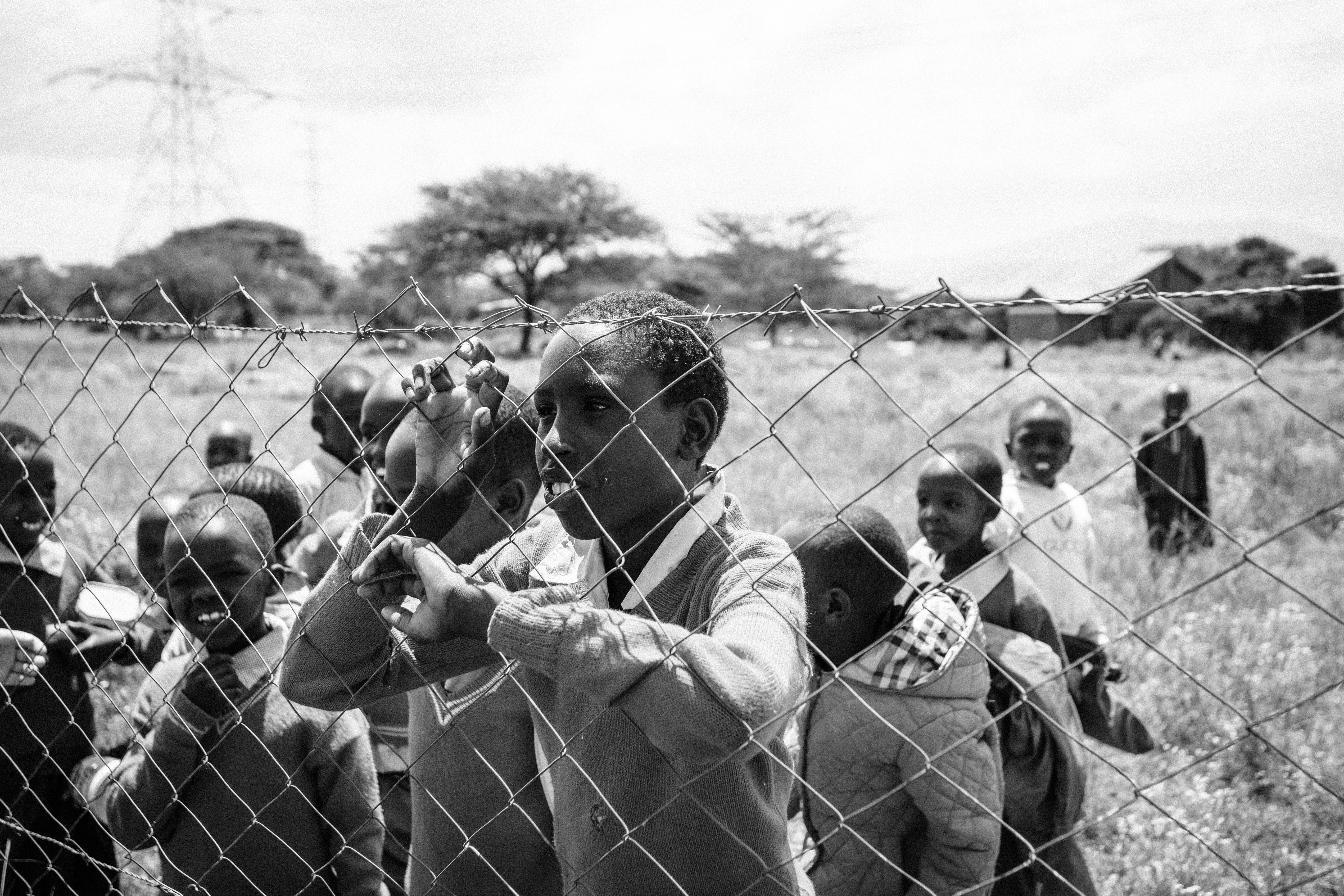To address the gaps in Kenya’s mental health literacy, we must start by educating health care workers.
R U Okay celebrations are currently being prepared, yellow flyers urging us to ask more and reach out to those who may need support through a difficult time. These signs have become a beacon of hope and a platform to normalise conversations around mental health.
These discussions however, aren’t always universal.
If someone told you that you were experiencing the effects of witchcraft when you were really having a panic attack, how would your perceptions of mental health change?
This is the reality for many people exposed to stigmatising attitudes in Kenya.
Mental illness affects over 450 million people globally.
With a very young population, increasing urbanisation and relative poverty, Kenya is heavily impacted by disease burden related to mental disorders.

We were eager to speak with Dr. Elijah Marangu – a lecturer at the School of Nursing and Midwifery and a researcher at the Institute for Health Transformation – and discuss how he set out to investigate the gaps and capacity for mental health care in the Kenyan health system.
The key goal of his research was to use this research to explore capacity building initiative among primary health care workers who constitute a majority of the health workforce in Kenya.
The Deakin/Pozible funded PhD project aimed to identify gaps in mental health care for Kenya, to undertake a mental health literacy survey, as well as to test-pilot a capacity building initiative targeted at primary health care workers.
The research project concluded in 2016 and Dr. Marangu has since graduated with his PhD.
In this article, he discusses his experience, reflections on the impact of his work, and next steps for mental health care in Kenya and similar countries.
Understanding Kenya and its foundations
Like many other countries, mental illness and people with mental illness are highly stigmatised.
These perceptions are made worse by some religious and traditional beliefs that link causation of mental illness with curses, demonic possession or witchcraft.

It is important to point out here that similar perceptions still exist in many countries, including Australia. It is difficult to uphold humane treatment of people with mental illness when such stigmatising attitudes exist in a society.
Kenya is quite different to Australia both politically and economically.
This difference is measured by the Human Development Index (HDI) – which is used to understand how long someone is expected to live, how educated they are and their standard of living.
To begin with, Kenya is ranked 144 in the HDI, while Australia is ranked first, so it may not be fair to compare the two.
Having said that, my experience working in Australia made the gaps in care between the two countries more apparent and spurred me to engage in this research.
In comparing the two countries, we can reflect on mental health policies and plans, mental health budgets, and human resources for mental health care.
The first two, while mandated as minimum stands for mental health services by the World Health Organization (WHO) have not been operationalised in Kenya.
Furthermore, in terms of human resources, Kenya has less than 1000 specialised mental health workers (population 48 million), while Australia has just over 17000 (population 24 million).
What does this research look like?

Data collection took place in four counties of Kenya, including two urban and two rural locations. The research team coordinated and had weekly meetings with the Supervision Team in Australia.
It helped that we had on-the-ground support from our collaborators in Kenya, Africa Mental Health Foundation and Professor David Ndetei.
Undertaking offshore research can be very challenging, and even more challenging when it is in a low-resource country like Kenya, for a start, you have to raise enough funds to ensure travel needs, stationery and research assistants’ allowances.
Kenya has an almost parallel research ethics application process, and the waiting period for that clearance was almost nine months.
In addition to this, Kenya is geographically expansive with varying accessibility challenges, when conducting research in rural areas.
It is important to understand that accessing these locations can present a range of problems, especially on seasonal, unpaved country roads.

As a native of Kenya, it helped to have inside information about terrain and seasonality challenges for Kenya.
Despite the above obstacles, it definitely did not detract from enjoying the beautiful countryside and wildlife to be found in Kenya.
Collaborating to develop the path forward
Often health care workers in Kenya are not used to participating in research. Despite this, they are welcoming of these projects as they allow them to gain more knowledge and improve their clinical practice.
We had a fantastic experience in one of the Counties where we did a pilot study with a pre and post-test.
There were health care workers in the third and fourth decade of their careers and they had never had exposure to any form of continuing professional development for mental health care.
They were quite involved and unsurprisingly, despite the brevity of the course, they gained a lot and we were able to measure this and include it in our results.
Of course, it is hard to change people’s attitudes from brief interventions.
Future work in this area has to focus on repeated exposure to mental health education to increase knowledge and change attitudes.
Life-changing impacts create brighter futures

In reflecting on our findings, they were pleasantly surprising in some ways, and in other ways quite shocking.
Despite prevailing stigmatising attitudes towards people with mental illness, participants in our study were quite open to socialising and did not mind being in proximity to people that experience mental illness.
Unsurprisingly, we found that there were extremely low diagnostic accuracy levels among health care workers when presented with a clinical vignette of a person with mental illness (depression or psychosis).
In both instances, diagnostic accuracy was well below 50%. This has significant implications for medication being prescribed and mental health care being provided.
One of the most rewarding experiences in this study was interacting with health care workers in the capacity building educational pilot.

Participants in Meru County showed a lot of enthusiasm in learning about different mental disorders, assessment strategies and care planning for people with mental illness.
Some participants shared their insights into their experience of the course, with one saying, “this course has taught me so much about how open I should be when I am assessing my patients.
“I feel like I am in a better position to help them following this training.”
Health care workers even acknowledge their lack of training since completing their studies, adding “in 22 years since college, I have not attend any course on mental health care, this has been very useful.”
While others described a newfound desire to learn more, saying “this course has made me think some more about what I prescribe, and how I treat people with mental illness.
“I want to know more about mental health and mental health care.”
It is important to note that there has been minimal mental health system research undertaken in Kenya.
Our study was the first one to utilise the World Health Organisation Assessment Instrument for Mental Health Systems (WHO-AIMS) and the Mental Health Literacy Survey questionnaire.
We are hopeful that results from our study can be used to advocate for better funding of mental health services in Kenya, and increase training of health care workers with appropriate skills to care for people with mental illness.
For the future, there are many opportunities to improve the state of mental health care in Kenya.

Kenya has a very young, mostly literate population, it is a highly digitised environment, and there is an emerging mental health consumer movement that will help to enhance advocacy for and on behalf of the person with mental illness in Kenya.
Many countries in the East, Central and South African Region can draw on lessons and findings from this research because they have similar health systems and challenges.
In our visits to Africa, we’re able to build a network that will ensure the progression of the work we have started.
If you feel like you need more support, please visit R U Okay? Day to find out more.
Get involved in the conversation and remember to ask every day, not just tomorrow.



